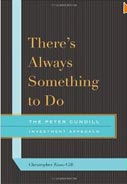The Secret to Learning Anything: Albert Einstein’s Advice to His Son

Einstein with his eldest son, Hans Albert, and his grandson, Bernhard – 1936
“That is the way to learn the most, that when you are doing something with such enjoyment that you don’t notice that the time passes.”
With Father’s Day around the corner, here comes a fine addition to history’s greatest letters of fatherly advice from none other than Albert Einstein – brilliant physicist, proponent of peace, debater of science and spirituality, champion of kindness – who was no stranger to dispensing epistolary empowerment to young minds. In 1915, aged thirty-six, Einstein was living in wartorn Berlin, while his estranged wife, Mileva, and their two sons, Hans Albert Einstein and Eduard “Tete” Einstein, lived in comparatively safe Vienna. On November 4 of that year, having just completed the two-page masterpiece that would catapult him into international celebrity and historical glory, his theory of general relativity, Einstein sent 11-year-old Hans Albert the following letter, found in Posterity: Letters of Great Americans to Their Children (public library) – the same wonderful anthology that gave us some of history’s greatest motherly advice, Benjamin Rush’s wisdom on travel and life, and Sherwood Anderson’s counsel on the creative life. Einstein, who takes palpable pride in his intellectual accomplishments, speaks to the rhythms of creative absorption as the fuel for the internal engine of learning:
My dear Albert,
Yesterday I received your dear letter and was very happy with it. I was already afraid you wouldn’t write to me at all any more. You told me when I was in Zurich, that it is awkward for you when I come to Zurich. Therefore I think it is better if we get together in a different place, where nobody will interfere with our comfort. I will in any case urge that each year we spend a whole month together, so that you see that you have a father who is fond of you and who loves you. You can also learn many good and beautiful things from me, something another cannot as easily offer you. What I have achieved through such a lot of strenuous work shall not only be there for strangers but especially for my own boys. These days I have completed one of the most beautiful works of my life, when you are bigger, I will tell you about it. I am very pleased that you find joy with the piano. This and carpentry are in my opinion for your age the best pursuits, better even than school. Because those are things which fit a young person such as you very well. Mainly play the things on the piano which please you, even if the teacher does not assign those. That is the way to learn the most, that when you are doing something with such enjoyment that you don’t notice that the time passes. I am sometimes so wrapped up in my work that I forget about the noon meal. . . .
Be with Tete kissed by your
Papa.
Regards to Mama.







